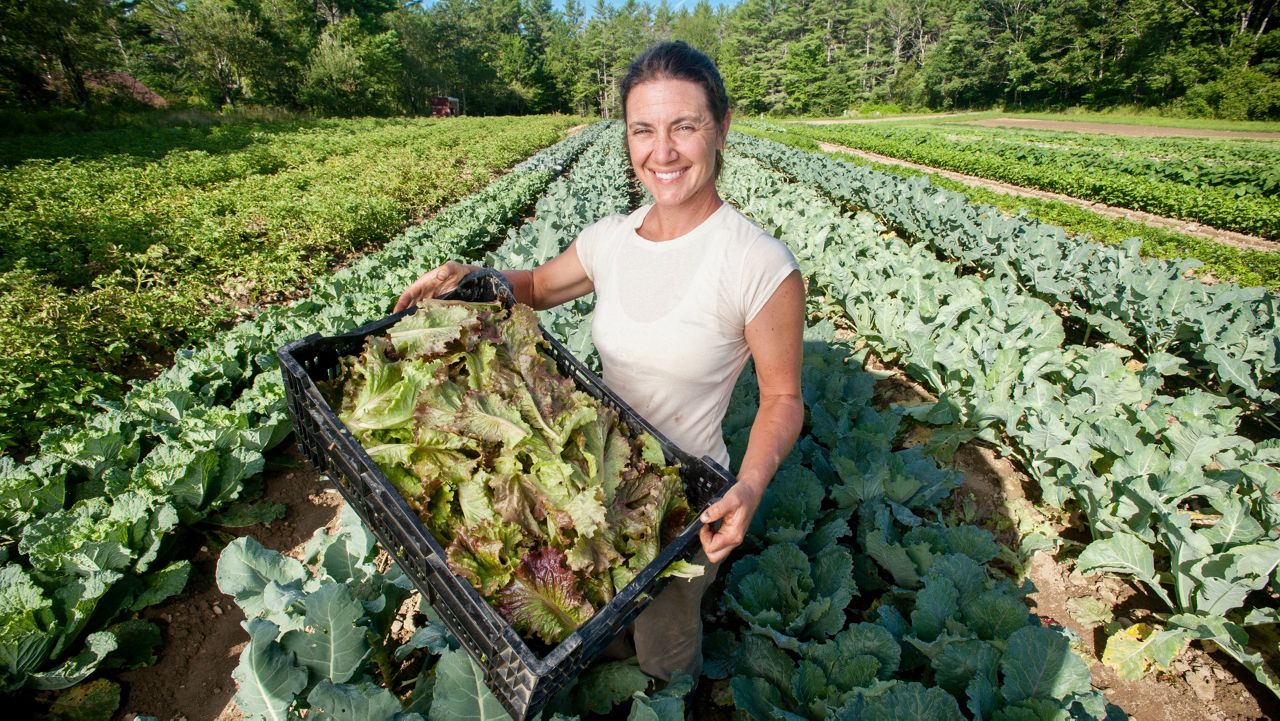Supporters of Question 3, a constitutional amendment guaranteeing a right to grow and consume food, say it’s a way to get ahead of restrictions that could be coming to Maine.
Opponents say it’s poorly worded and will have unintended consequences.
On Tuesday, it will be up to voters to decide.
Earlier this year, more than two-thirds of Maine lawmakers approved the amendment, sending it to voters for a final say. The question reads: “Do you favor amending the Constitution of Maine to declare that all individuals have a natural, inherent and unalienable right to grow, raise, harvest, produce and consume the food of their own choosing for their own nourishment, sustenance, bodily health and well-being?”
Bill co-sponsor Rep. Jennifer Poirier (R-Skowhegan) described the amendment as a proactive step to protect farming, hunting and fishing rights. Specifically, she mentioned a ballot initiative in Oregon that seeks to ban artificial insemination of farm animals and criminalize hunting, fishing and trapping.
“Those sorts of things are coming here,” she said. “I did look at the bigger picture and what could happen five to 10 years down the road. It’s just establishing that nobody’s going to be able to take away rights to hunt and fish.”
Yet Rebecca Graham, legislative advocate for the Maine Municipal Association, said she’s worried that because of the way it’s worded, food programs in county jails and schools could face lawsuits because the amendment calls for the right for individuals to “produce and consume the food of their choosing.”
Also, local ordinances that prohibit the use of pesticides could be challenged or a city resident could decide to raise farm animals despite local prohibitions, she said.
And if unnecessary restrictions on farmers or hunters crop up, addressing them through legislation – rather than a constitutional amendment – is the best way to help, she said. If lawmakers intended to reduce hunger, Question 3 is not the way to do it.
“They were voting on an ideology and not looking at the mechanics of what’s written,” she said. “The wording is really the biggest problem.”
Since Maine became a state in 1820, voters have approved 174 amendments to the state constitution. The most recent was in November 2019 when voters approved an amendment to allow persons with disabilities to sign petitions in an alternative manner.
And although constitutional amendments must be supported by two-thirds of the House and Senate before they are presented to voters, it only takes a majority of voters to approve it.
Amendment sponsor Rep. Billy Bob Faulkingham (R-Winter Harbor) said that constitutional amendments are often forward-looking and attempt to protect rights even before they need it.
“Presently, do we need a right to grow a garden, or raise livestock?” he wrote in testimony presented to lawmakers earlier this year. “No. I think today in most instances, that is a given. Jumping ahead 25 or 50 years into the future, could we see our government creating roadblocks and restrictions to the people’s right to food?”
Faulkingham also noted that he spent time working with Sen. Craig Hickman (D-Winthrop), who has sponsored previous “right to food” amendments.
In September, the Maine Municipal Association’s 12-member Executive Committee voted to oppose the amendment. Other opponents include the Maine Farm Bureau, Maine Potato Board, the Maine Veterinary Medical Association, Maine Friends of Animals and the Maine Animal Coalition.
The legislation that supports the ballot question states that the amendment does not mean Mainers can “commit trespassing, theft, poaching or other abuses of private property rights.” It does spell out a right to “save and exchange seeds.”
Palermo veterinarian Dr. Janelle Durrett Tirrell, speaking on behalf of the veterinary association, said they are concerned about animal welfare. She cited instances where someone may keep pigs in a smaller space than is healthy or someone who might keep poultry in an apartment, both of whom could claim they have a constitutional right to do so.
She said potato farmers are concerned that the provision that allows for sharing seeds could introduce blight. And she said there’s concern that those without a lobster fishing license could decide to drop traps in the water, again relying on the language in the amendment.
And although the stated intention is a “right to food” Tirrell says she doesn’t believe it will do anything to stop hunger.
“What is the intention here?” she asked. “How can we help get food insecurity addressed without food anarchy?”
On the other side, two leadership boards at the Sportsman’s Alliance of Maine voted to support the amendment, said executive director David Trahan.
“We see ‘harvest’ as putting the right to hunt and fish in the constitution,” he said.



